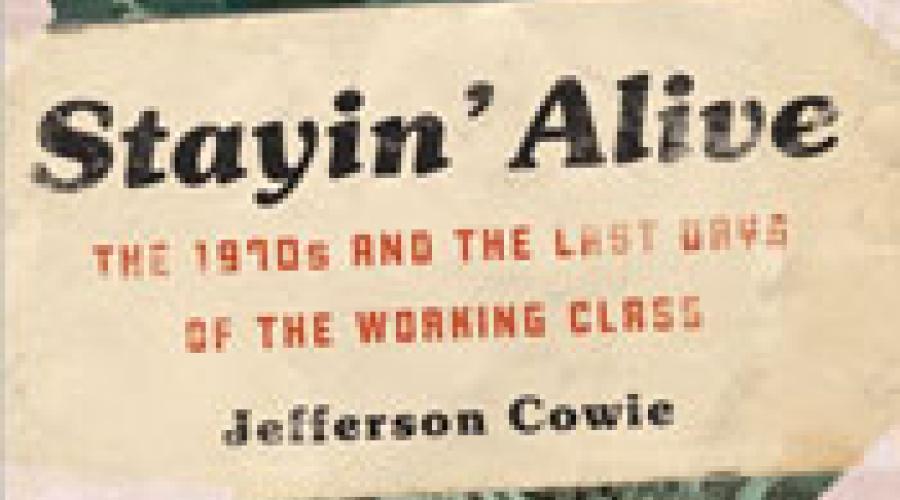
"Stayin' Alive"
Jefferson Cowie's new book examines an often misunderstood decade through a rich stew of social history, politics and popular culture.
Stayin' Alive: The 1970s and the Last Days of the Working Class interprets America's transitioning from New Deal optimism to widening economic inequalities and dampened expectations, according to the author, an ILR associate professor of labor history.
On Sept. 22, the Cornell Store Book Department will sponsor a presentation by Cowie on Stayin' Alive.
C-Span's "Book TV" program is scheduled to record the event, which will be held in the store.
Cowie will be introduced by Cornell Vice President of University Relations Glenn Altschuler, also the university’s Thomas and Dorothy Litwin Professor of American Studies.
From workplace insurgencies of the early 1970s to the politics of the nation’s capitol to the creations of Hollywood and Nashville, the book chronicles a shift, Cowie said, "from when the concerns of working people dominated the headlines to our own time, when they have less place in our civic imaginations than any time since the industrial revolution."
Cowie is the author of Capital Moves: RCA’s Seventy-Year Quest for Cheap Labor and co-editor of Beyond the Ruins: The Meanings of Deindustrialization. He is also house professor and dean of Cornell’s William Keeton House.
In describing Stayin' Alive, Cowie said, "I have tried to work out a complicated narrative in three-part harmony -- social history, politics, and popular culture -- that together offer a shared argument about how white, male working-class America revived in civic life in the seventies and then all but disappeared."
"The first half of the decade was infused with a conflicted sense of hope and possibility for working people of all colors and genders. The second half, however, was marked by despair in the emerging new order, as the 'working class,' even in its restricted pale and male postwar incarnation, lost much of its narrative punch, existential weight, and political draw."
"By the time of the opulent new world of the eighties, the American story was re-cast and re-edited, and those who did the nation's work were left out of the discussion. I hope this narrative serves a small part in rekindling some of the big questions and rediscovering the most significant loss of the seventies: a sense of open-ended possibility."
More information about the book is available at www.jeffersoncowie.com.


